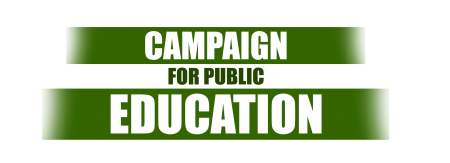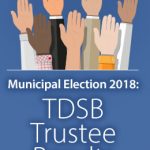Curriculum rollback discriminatory
/https://www.thestar.com/content/dam/thestar/news/gta/2018/11/06/ford-government-defends-sex-ed-rollback-argues-teachers-retain-substantial-discretion/sex_ed_teachers.jpg)
/https://www.thestar.com/content/dam/thestar/news/gta/2018/11/06/ford-government-defends-sex-ed-rollback-argues-teachers-retain-substantial-discretion/sex_ed_protest.jpg)
Teachers have “substantial discretion” when it comes to the interim sex-ed curriculum and are “required” to teach it “in a way that is inclusive and that reflects the diversity of the student population, including LGBTQ2S+ diversity,” says the province.
That’s according to court documents filed this week by the Minister of Education in response to legal challenges that argue the Progressive Conservatives’ controversial  and not inclusive.
and not inclusive.
The documents also provide insight into the popularity of a government website ForTheParents.ca that was created for parents to share concerns about the curriculum taught in their child’s classroom, which garnered intense backlash when it was launched and was lambasted by critics as being a “snitch line.”
In an affidavit, filed Monday in the Ontario Superior Court of Justice, Martyn Beckett of the Ministry of Education says learning expectations are designed so that “teachers have substantial discretion in deciding how to teach them.”
“No particular script or list of prohibited or mandatory words is provided,” says Beckett, assistant deputy minister of the student achievement division. “Teachers can choose, in the exercise of their professional judgment, how to design classroom programs to achieve the learning expectations in each grade set out in the HPE Curriculum, and how to implement those classroom programs for a diverse and heterogeneous class of individual students.”
For instance, he notes, teachers can talk about sexual orientation and gender identity, as part of a Grade 5 learning expectation that students “describe physical, emotional, and interpersonal changes associated with puberty.” And in Grade 7, when students are expected to “identify sources of support with regard to issues related to healthy sexuality (e.g., parents/guardians, doctors),” teachers can discuss sources of support that may focus on LGBTQ2S+ students.
Similarly, in Grade 1, students are expected to identify “major parts of the body by their proper names,” and nothing prohibits teaching students “the proper names for genitalia (including penis and vagina).”
His affidavit was among the documents submitted by the province in its response to legal challenges by the Canadian Civil Liberties Association (CCLA) and the Elementary Teachers’ Federation of Ontario (ETFO).
Those challenges were launched after Premier Doug Ford in August repealed the modernized Health and Physical Education curriculum introduced in 2015, which addressed issues such as same-sex relationships, consent, sexual orientation and gender identity. It was replaced by an interim curriculum from 2010, which includes sex-ed material from 1998.
The CCLA and Becky McFarlane — the queer parent of a 10-year-old girl in Grade 6 — filed a joint application in late August seeking an injunction to stop what it called a “discriminatory” curriculum. They argue the outdated curriculum does not foster a safe and inclusive environment for those who are LGBTQ+ and that the province is violating the Canadian Charter of Rights and Freedoms that guarantees equality and security; the Ontario Human Rights Code that outlaws discrimination; and the Education Act that requires schools be an inclusive environment.
In early September, ETFO launched another legal challenge which argues the province is violating teachers’ Charter rights, and their professional and ethical obligations enshrined within the Education Act and the Standards of Practice of the Ontario College of Teachers. The union, which represents 83,000 educators, is also demanding an end to the so-called snitch line, calling it an abuse of power.
In his affidavit, Beckett says that when ForTheParents.ca was introduced Aug. 22, it was for parents to weigh in on the sex-ed curriculum taught to their kids. During the first month, the government received about 25,000 submissions — of these, “very few included allegations of professional misconduct against a teacher, and only 13 of these included the contact information of the person making the submission.” The ministry contacted those 13 people and told them to notify the Ontario College of Teachers.
On Sept. 28, the website was broadened to solicit input on a range of education issues, including improving math and science grades and banning cellphone use in the classroom, as part of a province-wide consultation. By Oct. 29, the government had received 9,897 submissions and 6,523 people had completed a survey. People can also participate in Telephone Town Halls, which have been attracting between 25 and 135 participants per session.
Beckett notes the consultation process will run until Dec. 15 and that input will inform the government’s decisions for the next school year, including the creation of a new sex-ed curriculum that is age appropriate.
Both the CCLA and the ETFO challenges will be heard together in Divisional Court in January.
Isabel Teotonio is a Toronto-based reporter covering education. Follow her on Twitter: @Izzy74


